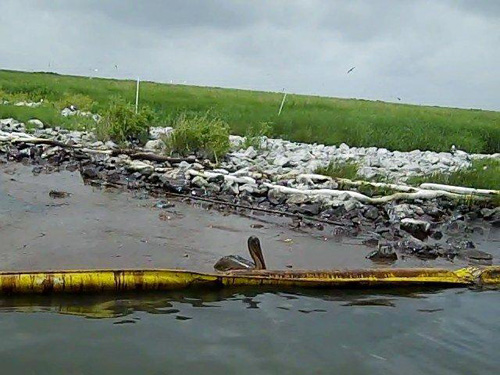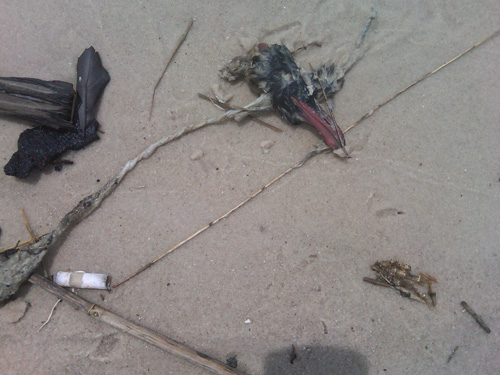 128 COMMENTS
128 COMMENTS June 10, 2010 |

Why would Israel, in a deliberate and methodical operation planned over a week in advance - according to statements by senior Israeli military commanders made in Hebrew-language media days before the attack - target an unarmed ship on a humanitarian mission flying the flag of Comoros? (Unlike Turkey, Comoros is a party of the Rome Statute of the International Criminal Court, which has jurisdiction over war crimes committed on vessels of member states.)
Why would Israeli commandos shoot nine unarmed activists dead with nine millimeter bullets at close range, between the eyes, in the top of the head, in the back of the head, in the chest, in the back, and in the legs - including an American citizen? (The final death toll may be 15, as six activists are still missing; Israeli army radio reported 16 dead early last Monday when the attack took place on the Mavi Marmara, a part of the Free Gaza flotilla.)
How could Israel think it would get away with it by censoring video and photos - and then getting away with it all over again by refusing an international, independent commission to investigate the incident and subsequent cover-up?
Why, geopolitically, would Israel declare war on the de facto international community - from Muslim nations to North Atlantic Treaty Organization (NATO) member-countries to global public opinion?
Is this merely a case of a "dysfunctional government", as Bradley Burston wrote in the Israeli newspaper Ha'aretz? And strategically speaking, is there any method behind the madness? Or is the method actually the madness?
Be afraid, be very afraid
There may be a very simple answer to all these questions: fear.
Let's survey Israel's possible motivations. A key Israeli motive to attack the humanitarian flotilla was to send a "signal" to Turkey about the Brazil and Turkey-mediated Iran nuclear fuel-swap deal - as its success pre-empted Israel's pleas for a military strike on Tehran's nuclear facilities. Israel wants conflict between Washington and Tehran - and that means using the Israel lobby in Washington to sabotage US President Barack Obama's half-hearted attempts at finding any sort of agreement with Tehran over its uranium-enrichment program.
Israel wants a weak Turkey - out of the loop both in the Middle East and the European Union (EU). Turkey is an emerging, key regional power now with good, stable relations with its neighbors. Turkey is key for the US: 70% of all supplies for US troops in Iraq go through the Incirlik base in Turkey. Turkey has troops fighting the US war in Afghanistan. Not to mention that Turkey - in Obama's own terms - represents the key bridge between the West and the Muslim world.
The White House gave a wimpy response, "The United States deeply regrets the loss of life and injuries sustained and is currently working to understand the circumstances surrounding this tragedy." This was also Washington's signal to Turkey that the Brazil-Turkey mediation on the Iran nuclear fuel swap deal was not exactly welcome.
Iran agreed last month with the leaders of Brazil and Turkey to send most of its low-enriched uranium to Turkey to be held in escrow pending delivery of fuel rods for the Tehran Research Reactor.
As much as Israel wants Turkey immersed in deep trouble with both Syria and Greece, and fighting a nasty internal Kurdish problem, Ankara is not exactly trembling because of Israel's "message". In terms of conventional military strength, Turkey is ahead of Israel itself; and moreover it is a very important US NATO ally.
Another key Israeli motive was to undermine and in fact abort any possibility of meaningful peaceful negotiations with the Palestinians and the Syrians - and to cut Turkey from the loop. Turkey is very much involved in the Palestinian tragedy. It is trying hard to breach the gap between Fatah and Hamas. A key Israeli aim appears to be to sabotage any Turkish-led peace initiative to solve the Palestinian problem that includes the essential provision of a fully denuclearized Middle East - anathema to (undeclared) nuclear power Israel.
To round it all up, there is the crucial element of fear itself. As the once-fabled Israeli Defense Forces (IDF) have struggled in battles with Hezbollah in Lebanon in 2006 and Hamas in Gaza in 2008, they have had to come to grips with the fact that their tanks are now vulnerable to Russian-made rocket-propelled grenades; their ships are now vulnerable to Hezbollah's made in China missiles; and their planes will soon be vulnerable to Russian S-300 surface-to-air missiles.
The new axis in town
Iraqi Kurdistan is now virtually independent - according to Washington's designs. Israel is robustly active everywhere in Iraqi Kurdistan. At the same time, the US actively supports the Iraq-based Kurdish Workers' Party separatists in eastern Anatolia as well as Party of Free Life of Kurdistan (PJAK) separatists in Iran and Kurdish separatists in Syria. The Turkish military spent no time analyzing these crucial developments. Their conclusion: NATO is not exactly a panacea. We must focus on the Middle East.
And this has led to the ultimate Israeli nightmare. The new key axis in the Middle East is Turkey, Iran and Syria. It used to be only Iran and Syria. Its historical legitimacy simply cannot be questioned, as it unites Shi'ite Iran, secular Syria and post-Ottoman Sunni Turkey.
There are many fascinating side-effects of this cross-fertilization - such as more than a million Iraqis, many of them very well educated, finding a new life in Syria. But the most remarkable effect of this axis is that it has smashed the same old divide-and-rule logic Western colonialism has been imposing on the Middle East for more than a century. Turkey's destiny may not be firmly attached to a fearful Europe that really does not want to embrace it after all; Turkey is to become once again a leader of the Muslim world.
Life for the new axis won't be easy. United States covert operations have tried to destabilize Syrian President Bashar al-Assad - to no avail. The same for US Central Intelligence Agency black ops in Sistan-Balochistan province in southeast Iran, as a means to destabilize the regime in Tehran. And the same for shady covert ops meant to bring a new military dictatorship in Turkey. But while US Secretary of State Hillary Clinton perfects her vociferousness, Assad, Hezbollah's Hassan Nasrallah and Iranian President Mahmud Ahmadinejad got together this February in Syria and advanced their partnership.
Crucially, Russia immediately stepped in to fill the US-provoked void. Russian President Dmitry Medvedev has been to Ankara and Damascus and has positioned himself in favor of full reconciliation between Fatah and Hamas and a fully functional Palestinian state side-by-side with Israel.
Even US Central Command commander General David “I'm always positioning myself to 2012” Petraeus has been forced to publicly admit that US strategic ally Israel - because of the non-stop colonization of Palestine and the blockade it is enforcing in Gaza - has become an immense burden for US strategic designs.
Russia on the other hand supports the new Turkey, Syria and Iran politico-economic axis. Visa-free travel between Ankara and Moscow is now on. Russia's Rosatom and Atomstroyexport are finishing Iran's Bushehr nuclear power station this August; are discussing the building of other plants; and have clinched a Turkish nuclear power station deal worth US$20 billion (Syria is also interested). Stroitransgaz and Gazprom will bring Syrian gas to Lebanon - as Israel prevents Lebanon from exploiting its considerable offshore reserves. Russia is on a roll. Tehran will soon receive its already paid-for S-300 missiles. And Syria will soon get a new naval base.
In Pipelineistan, Russia and Turkey are now brothers in arms. Russia will build a crucial Samsun-Ceyhan pipeline to bring Russian oil from the Black Sea to the Mediterranean. Moreover, Turkey is about to join the Russian South Stream gas pipeline - and that means a direct blow to the troubled US/EU-supported Nabucco.
Russia - just like Turkey - also wants a fully denuclearized Middle East, which implies a non-nuclear Israel. This will be discussed at the United Nations' International Atomic Energy Agency.
Thus, essentially, Israel fears the new Turkey, Syria and Iran as much as it fears Russian support for it. A new Middle East is being born - and there seems to be only one place for Israel: isolation.
Israel's "mad dog" strategy - conceived by former military leader Moshe Dayan - is not exactly an exercise in fitting in. Even centrist Middle East analyst Anthony Cordesman, an establishment icon at the Center for Strategic and International Studies, wrote an essay under the title "Israel as a Strategic Liability?"
Big Brother Washington may be - forever - blind to it; but if you are a state and your strategy is to configure yourself as South Africa at the twilight of apartheid - by the way, at the time Israel was trying to sell nuclear weapons to South Africa - method is the last thing to be found in your madness.
Pepe Escobar is the author of Globalistan: How the Globalized World is Dissolving into Liquid War (Nimble Books, 2007) and Red Zone Blues: a snapshot of Baghdad during the surge. His new book, just out, is Obama does Globalistan (Nimble Books, 2009).
He may be reached at pepeasia@yahoo.com.
He may be reached at pepeasia@yahoo.com.





